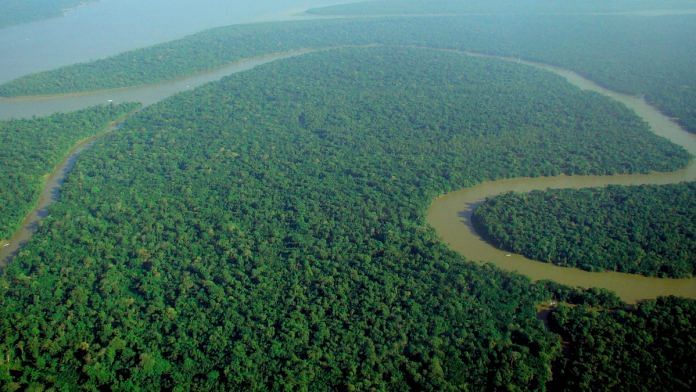In 2018, humans found out that evolution of complex life happened far before we thought, and memory can be ‘transplanted’ between organisms.
Earth has lost 60% of life in less than four decades
This year, it was discovered that between 1970 and 2014, Earth has lost 60 per cent of animal life, including mammals, fish, birds, reptiles and amphibians. The Amazon rainforest has shrunk in size by a fifth, while half of all shallow water corals have disappeared.
The insect population is also rapidly declining — some species have been lost completely, while some others’ numbers have rapidly degraded.
Ghost particle in Antarctica leads to the discovery of blazars
Scientists discovered a “ghost particle”, a neutrino, last year, using sensors embedded inside the ice in Antarctica. It was incredibly energetic, and tracing it back to its source has led to the 2018 revelation that it originated from a ‘blazar’, a rapidly-spinning black hole that is millions and millions of times bigger and heavier than the sun.
Global warming led to the decline and destruction of the Indus Valley Civilisation
Using DNA evidence from marine sediments off the coasts of India and Pakistan, scientists were able to recreate rainfall patterns during the Indus Valley Civilisation. They noted that changing weather patterns, potentially aggravated by large-scale agriculture, led to spare rainfall in the summer, causing crop loss. Human settlers started moving away from the bustling ancient cradle of civilisation towards the foothills of the mountains, before disappearing.
Also read: What Indian scientists achieved in 2018 beyond ISRO and its rocket launches
A method to ‘transplant’ memory between organisms
By extracting RNA from one snail and injecting it into another, scientists were able to transfer memory from one organism to another. This directly challenges all previous theories on how memories form and cannot be transferred to other people. The finding marks a potential way to restore memory to humans.
An underground lake on Mars
Scientists working on the MARSIS camera aboard the European Space Agency orbiter discovered a large lake under the south pole of the planet after collecting data for three years. Buried 1.5km deep under a heavy pile of ice, the sub-glacial lake contains several minerals and salts that keep the water liquid. It could probably also be a thick sludge of muddy sediments.
Also read: This researcher has named his latest find after Modi govt’s top science official
Two extinct early human species had mated with each other
Anthropologists studying human evolution found out that two other extinct human species mated with each other.
The Denisovans and the Neanderthals were two other species of humans, different from the Homo sapiens. Scientists have long suspected that all species interbred, considering we have genetic evidence of both species in our own DNA. However, the discovery of a first generation child of a Denisovan father and a Neanderthal mother confirmed that such interbreeding between the ancient species was common, and also useful for carrying down genetic defences.
Earliest-known animal pushes back evolution of complex life by millions of years
At 558 million years old, the Dickinsonia became the earliest animal known to humans. It was an oval animal that resembled a jellyfish.
The discovery pushes back the date of the earliest known animal life by millions of years, showing that complex life evolved much before we thought it did.



